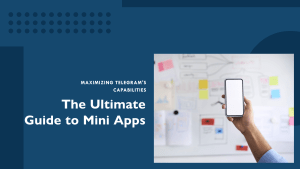In the fast-paced world of cryptocurrency, Initial DEX Offerings (IDOs) have emerged as a popular fundraising method for blockchain projects. However, amidst the myriad of blockchain platforms available, selecting the right one for your IDO development can be a daunting task. In this blog post, we’ll explore key considerations for choosing the ideal blockchain platform for your IDO development, popular platforms for ICO development, and how to make the right choice for your project’s future.
Understanding IDO Development
Before delving into the intricacies of blockchain platform selection, it’s crucial to understand what IDO development entails. IDOs are a decentralized version of Initial Coin Offerings (ICOs), conducted on decentralized exchanges (DEXs) instead of traditional centralized platforms. They allow projects to raise funds by offering tokens directly to investors, fostering decentralization and liquidity within the ecosystem.
Choosing the Ideal Blockchain Platform for IDO Development
When selecting a blockchain platform for your IDO development, several factors come into play:
- Scalability: Ensure the chosen platform can handle the volume of transactions expected during your IDO without congestion or delays
- Security: Security is paramount in the crypto space. Opt for a platform with robust security features to protect against hacks and vulnerabilities.
- Interoperability: Consider whether the platform supports interoperability with other blockchains, facilitating seamless integration and broader accessibility.
- Community Support: Look for platforms with a vibrant and supportive community, as they can provide valuable resources, feedback, and networking opportunities.
- Smart Contract Functionality: Since IDOs rely heavily on smart contracts, choose a platform with advanced smart contract capabilities to execute your fundraising mechanism efficiently.
- Regulatory Compliance: Stay abreast of regulatory requirements and opt for a platform that offers compliance solutions to ensure your IDO complies with relevant laws and regulations. Popular Blockchain Platforms for IDO Development
Several blockchain platforms have gained traction for hosting IDOs:
- Ethereum: As the pioneer of smart contract functionality, Ethereum remains a popular choice for IDO development despite scalability issues.
- Binance Smart Chain (BSC): BSC’s low transaction fees and high throughput make it an attractive option for IDOs seeking cost-effectiveness and scalability.
- Polygon (formerly Matic): With its Ethereum-compatible architecture and layer 2 scaling solutions, Polygon offers a compelling alternative for IDO development, boasting fast and inexpensive transactions.
- Solana: Known for its high throughput and low latency, Solana provides a scalable platform for IDOs, attracting projects seeking fast transaction speeds and low fees.
- Tezos: Tezos offers a self-amending blockchain with on-chain governance, making it an appealing choice for projects prioritizing decentralization and community governance. The Right Choice for Your Project’s Future
When selecting a blockchain platform for your IDO development, it’s essential to consider your project’s long-term goals and requirements. Conduct thorough research, assess each platform’s strengths and weaknesses, and prioritize factors such as scalability, security, and community support.
Furthermore, engage with the respective communities, seek advice from experienced developers, and evaluate case studies of successful IDOs hosted on each platform. By carefully weighing these considerations, you can make an informed decision that aligns with your project’s vision and sets the stage for future growth and success.
Wrapping Up
In conclusion, choosing the ideal blockchain platform for your IDO development is a critical decision that can significantly impact the success of your project. By considering factors such as scalability, security, interoperability, community support, smart contract functionality, and regulatory compliance, you can narrow down your options and make a well-informed choice.
Moreover, exploring popular blockchain platforms such as Ethereum, Binance Smart Chain, Polygon, Solana, and Tezos can provide valuable insights into their respective strengths and suitability for hosting IDOs.
Ultimately, prioritize your project’s long-term goals and requirements, seek advice from industry experts, and conduct thorough due diligence before committing to a blockchain platform. With careful consideration and strategic planning, you can position your project for success in the dynamic world of IDO development.





